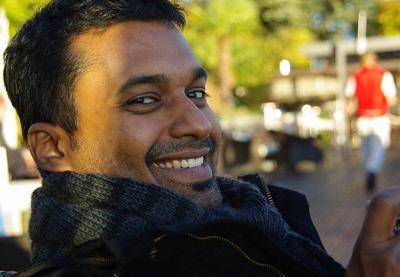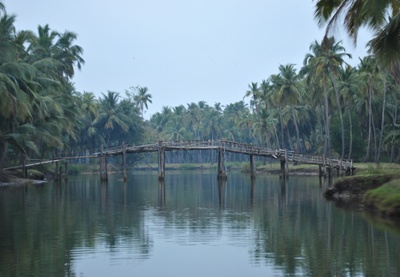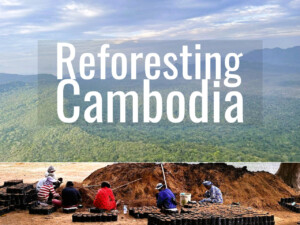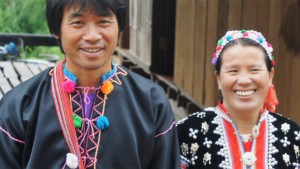Parayil: Kerala’s chief responsible tourism storyteller?

Parayil’s responsible tourism journey began in 2003 while submerging the ashes of his father in the Bharatapuzha River. He realised that the river was dying; that it did not have enough water to carry the remains of a departed soul.
The 209-kilometre Bharathappuzha (“River of Bhārata”), also known as the River Nila, flows through the Indian state of Kerala. It is the second-longest river in Kerala, after the Periyar River. The word “Nila” is indicative of the culture along the river more than the river itself. (Wikipedia.)
In 2003 Parayil had acquired three postgraduate degrees and had walked away from a lucrative job with an American multinational. And he knew that working with people and communities was closest to his heart. An earlier stint as a volunteer in palliative care at the Calicut Medical College was an experience that had come to define him. It nurtured a desire to work with people who need help. And it is where he learned something about the practicalities of resource management. He is still volunteering in palliative care 23 years later.
Inspired by the folk songs of the Pulavars who inhabit the banks of the Nila near his home town of Tirur, Parayil thought about how he might mobilise the community to care more about their river. Thus in 2004 he founded the Nila Foundation and rallied people interested in saving the river.
“What was once the life line of Kerala, is today a decaying, dying river. It is out of concern for Bharatapuzha (River Nila); the erosion of the river banks, the dilution of its culture, neglect and depletion of its resources; that the Nila Foundation was formed. The foundation intends to provide a common platform for those who are concerned about rivers in general and River Nila in particular.” — The Nila Foundation
Parayil also thought hard about how he might leverage the unique culture and rich heritage of the Nila to develop a new business model. He developed a tour, which tool travellers to visit and interact with the stakeholders of the river, including artists, craftspeople, poets, and writers. And he began offering weaver and pottery-making workshops, bell metal casting experiences, as well as visits to sacred groves and farms. And he told stories.
Positive change flowed. For example, illegal sand miners began ferrying travellers to remote destinations, thereby earning a legitimate income. And the previously ailing tradition of Pava Kathakali (glove puppetry) found new life through increased demand.

The Bharatapuzha, (River Nila) in Kerala, India. Source: The Blue Yonder
The Nila experiences were the first products offered by his business, The Blue Yonder, which is setting up offices in Puducherry and Fort Kochi. In Fort Kochi, Parayil plans to implement a stewardship model by which restored heritage homes will open up as places to stay along the Bharatapuzha. The Blue Yonder now also sells “immersive & cultural travel experiences” in three other South Asian nations – Bhutan, Nepal, and Sri Lanka — plus South Africa
Parayil, the tour operator, says he can run a 180-day tour for travellers without repeating a story but wonders where the storytellers are: “This is what we lack; so many stories and so few storytellers.”
Sources: This post is based on an article in The Hindu. Please read the full story for more detail and quotes from Gopinath Parayil. The featured image is of Gopinath Parayil from The Blue Yonder.
Related posts





